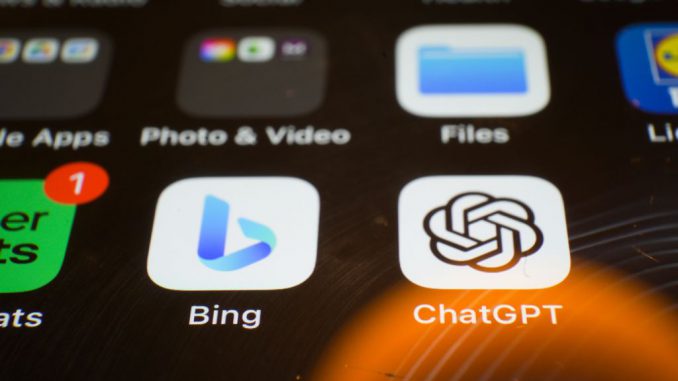
By AJ Fabino
OpenAI has plans for its ChatGPT chatbot that will reportedly rival Microsoft Corporation (NASDAQ:MSFT), which invested $10 billion in the company for a 49% stake.

CEO Sam Altman has privately spoken with investors about plans to evolve ChatGPT into a “supersmart personal assistant for work,” according to a Monday report in The Information. The revamped assistant would draft emails or documents, applying individual style and up-to-date business information.
The proposed enhancement of ChatGPT could cause conflicts of interests with Microsoft, its investor, and cloud provider. Microsoft, along with Salesforce and other OpenAI customers, also plans to incorporate OpenAI’s software to develop AI copilots for the workplace, The Information said.
Microsoft also provides exclusive computing power for OpenAI’s research, products and programming interfaces.
The Satya Nadella-led company in January announced a $10-billion investment in OpenAI as part of a funding round, valuing the startup at $29 billion. As part of the deal, Microsoft aimed to acquire 75% of OpenAI’s profits until the recovery of its investment, upon which it would retain a 49% stake.
After the return of Microsoft’s investment, a percentage of OpenAI LP’s profits would go to Microsoft up to a capped amount, with the surplus directed to the nonprofit body.
The unconventional structure has been a subject of concern for OpenAI’s early backers, including Elon Musk, who disagreed with Microsoft’s level of ownership and the potential implications for AI.
Though, Altman said at a recent Bloomberg Technology Summit that he and Microsoft are happy with the deal.
OpenAI’s investor had gone above and beyond push the technology to other automotive companies.
Microsoft had teamed with Mercedes-Benz in building ChatGPT built-in technology for automobiles.
Mercedes-Benz already had a built-in voice command control for its smartphones that connected with the iPhones and androids.
“Mercedes-Benz combines the best of both worlds, enhancing the validated data of the MBUX Voice Assistant with the more natural dialogue format of ChatGPT. Users will experience a voice assistant that not only accepts natural voice commands but can also conduct conversations,” Mercedes-Benz said in a statement. “Soon, participants who ask the Voice Assistant for details about their destination, to suggest a new dinner recipe, or to answer a complex question, will receive a more comprehensive answer – while keeping their hands on the wheel and eyes on the road.”
Produced in association with Benzinga
The post OpenAI’s ChatGPT To Compete With Microsoft’s AI Chatbot appeared first on Zenger News.

